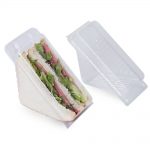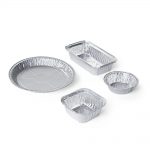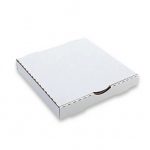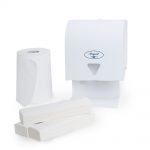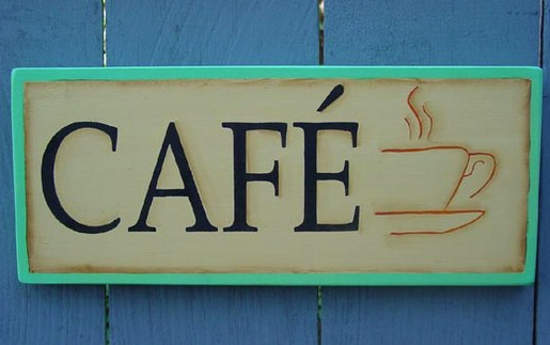Blog Categories
- Tips and Advice (55)
- Sustainability (26)
- Trends and Innovations (25)
- Tutorials and Templates (6)
- Regulations (2)
Jul
26
Posted on July 4, 2016 by Ash Bennett
26
Choosing a Name for Your Café
Posted on July 4, 2016 by Ash Bennett
The name of your café is the most immediate aspect of its identity. How do you want your café to announce itself to the world? And what kind of name will be conducive to success? These are not light questions, as the name you decide upon can effectively make or break your business.
There is no failsafe formula for creating the right name for your café. What makes a good or bad name in the minds of some people might be different to others. Having said that, there are certain considerations new café owners should take into account before committing a name to their signage.
1. Drawing on location
The one obvious advantage of referring to the café’s location in its name is that people will have little problem knowing where to find it. However, ‘The Smith St Café’ could be a viable name in a small town in which yours is the only café on the block, but in more built up areas where the streets are lined with competitors, a name like this is not an effective means to make your café stand out. In these conditions you need a name that sells the distinct experience your café offers, to make it stand out above the surrounding businesses. In other words, you need a name that conveys more than simply where the café is.
Another potential shortcoming of incorporating a café’s location into its name is that the name can’t travel if there comes a time when you need to relocate or even expand your business into new locations.
2. Reflecting a theme
It is important to choose a name that resonates with the theme of your café as it’s expressed through other aspects of the business like the menu and the interior design. In this way your café will possess a coherent identity, a solid brand that will leave a distinct impression on customers. If these different elements are at odds, it will water down your café’s identity. Think about the type of food you’re serving and make sure you’re not creating confusion by using a name that evokes a different perception.
For example, an Asian style name might imply Asian style food is served, which is great if in fact you do serve Asian food. But if you’re actually dishing up an Italian menu, you might want to reconsider the name to better align with the offering so that a cohesive identity is presented to the customer.
3. Making an impression
What do you want your customers to think about when they read your name? This is something that needs to be thought about carefully and that only you as the business owner can determine. Are you trying to evoke a specific emotion, and if so what kind of words will lead to this?
Try to make sure your name is unique – there are online tools, such as the one offered by the Australian Securities and Investments Commission (ASIC), that can run a check to see if there are any competitive businesses in the area with the same name. You want to choose a name that is strongly associated with your business and identity.
A good way to make a name unique is to draw upon personal connections. Perhaps it was a love of your dad’s cooking that inspired you down the hospitality line, and you want to honour this by naming the café after him? Customers love to hear a good story behind a name, so be prepared to share the inspiration behind it.
4. Attracting your customers
Another important step in arriving at a suitable name is determining your target customers. Are your customers morning commuters? Students? Couples out for a romantic brunch? Office workers? Or perhaps you’re in a location that attracts a mixture of customers?
Whoever they might be, knowing who your customer is will help you to understand how your name will be perceived, if it will draw customers in and keep them coming back.
Try not to let creativity get the better of you. If you end up with an unclear name, it might leave your target customers wondering what kind of service or food you provide. So while it might seem like a positive thing to have an obscure business name, you shouldn’t opt for one with irrelevant connotations. If your business name is a mystery to customers at the start, it is likely to continue to remain so.
5. Keeping it simple
A hard to spell or pronounce name can seriously set back your café. If potential customers can’t work out how to spell the name of your café, they may have difficulty searching for it online. Naming experts in the hospitality industry strongly recommend new business owners opt for business names that people can easily remember. Therefore, the shorter the name of your business, the easier it will be for your customers to remember, and this should be your ultimate priority as you establish your business.
Whether this is a feature of your business from the outset, or a consideration as your business grows and develops, you will no doubt promote your business online at some stage, be it through a bespoke website or using the directory services of other online platforms. Therefore you should aim to steer clear of using hyphens and multiple characters that will only confuse customers trying to look up your business online. Also, consider looking into what keywords people would use when searching for the services or food you provide.
6. Ensuring it’s legal
A perhaps obvious yet crucial point to keep in mind when naming your café is to ensure the name you come up with has not already been registered or reserved by another business. Before getting your hopes up that you have found the perfect name for your business, check whether you can use it or not, so you don’t become liable for infringement on someone else’s trade name.
Should you infringe on another business’s trademark, you will imminently get into a legal battle that will affect your success and shadow your reliability in the future. Therefore you might want to seek legal advice to safeguard you against any unforeseen legal battles down the track.
ASIC is a useful resource when setting up your business. ASIC offers advice and guidance when it comes to certain legalities and industry requirements.
Equally, once you’ve settled on a name, don’t underestimate the time and effort involved in registering it. Don’t delay the process or you could find it being snapped up by a competitor!
Coming up with the right business name can be a tricky process but the above tips should provide a good starting point to guide you along the way. Remember, you can reach out to business coaches, legal representatives, and independent government bodies such as ASIC, for help and guidance, so don’t feel like you need to go it alone!

































